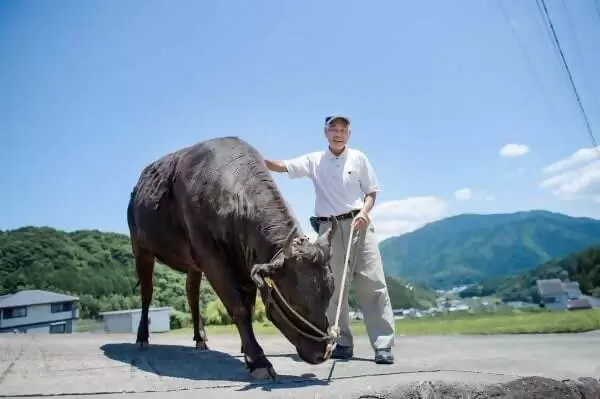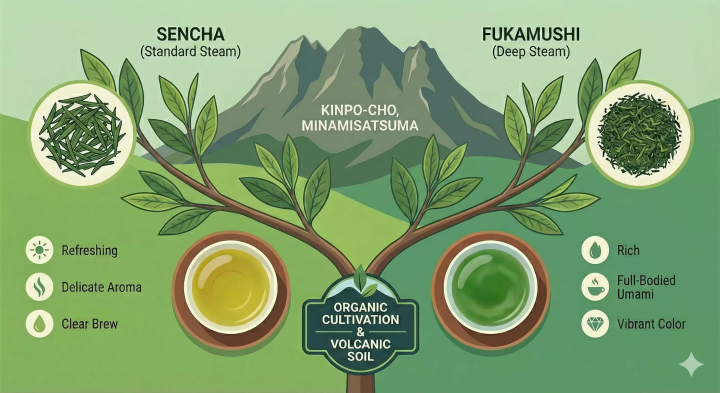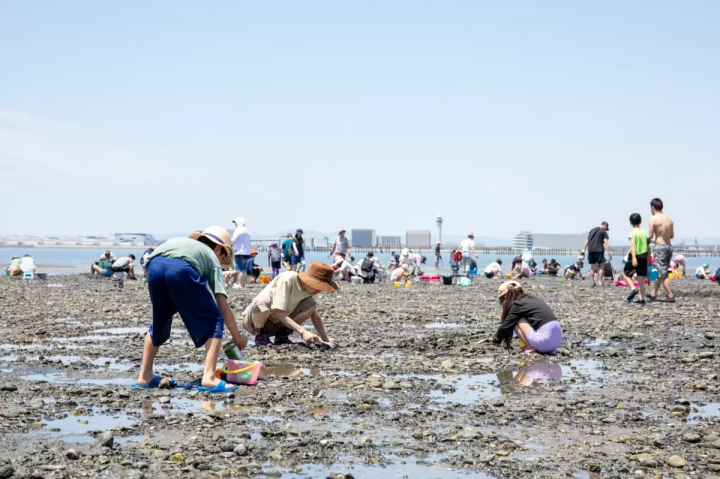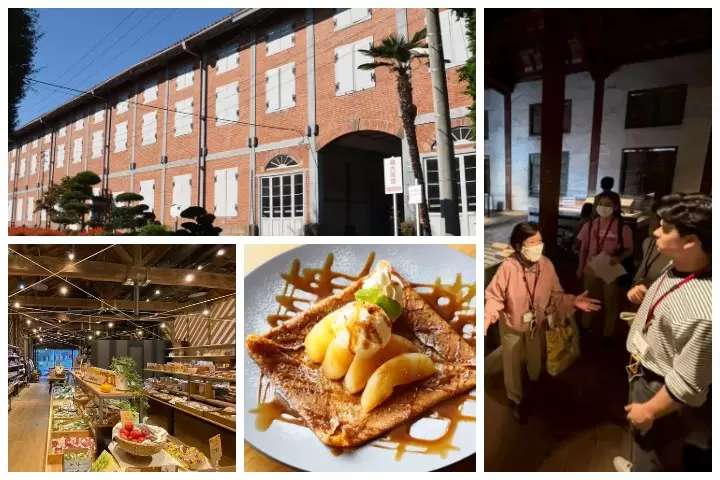Kita Onsen In Tochigi (1): Travel Back In Time To A Secluded Onsen Inn

Kita Onsen, an isolated hot spring dating back 1,200 years, is located in the Nasu-Onsenkyo mountains of northern Tochigi Prefecture. It offers travelers a rare experience of bathing, staying and dining in authentic Edo period surroundings.
Kita Onsen in Tochigi: A Hot Springs Shangri-La for the Onsen Enthusiast
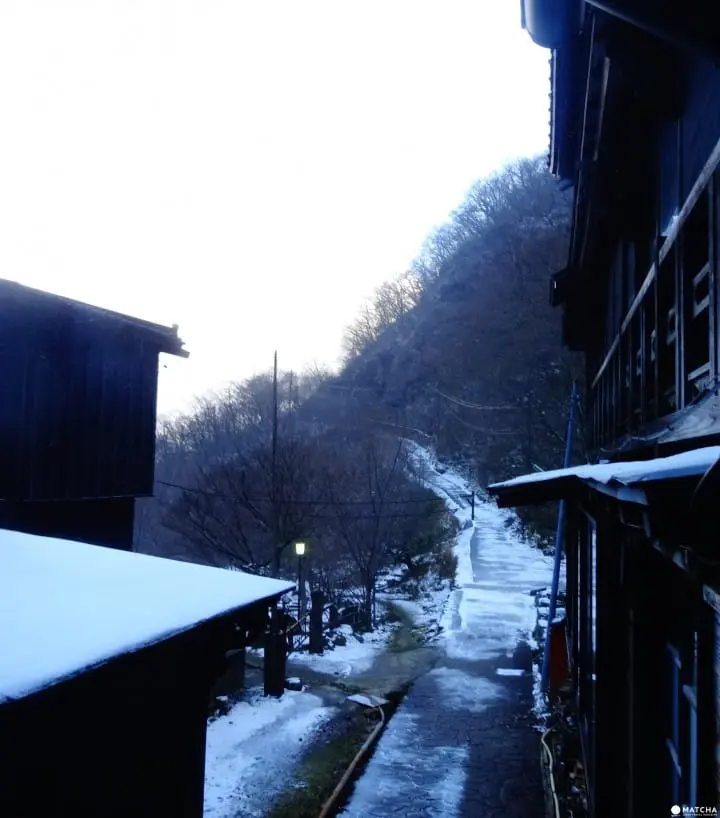
Mountain path leading to Kita Onsen
Kita Onsen Ryokan (“North Hot Springs Inn”) is nestled deep in a mountain valley along the Yosase River of the Nasu-Onsenkyo area of northern Tochigi Prefecture. It is the sole hot springs facility in the area and consists primarily of three structures built during late Edo (1603-1868), early Meiji (1868-1912) and early Showa (1926-1989) periods.
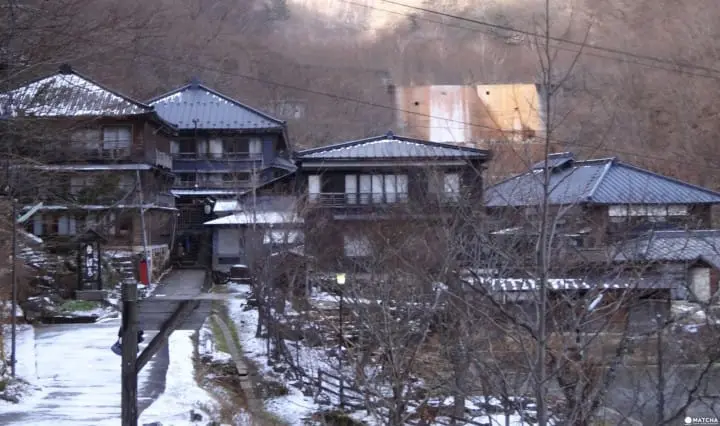
From left to right are structures built in the Meiji, Edo, Showa era respectively.
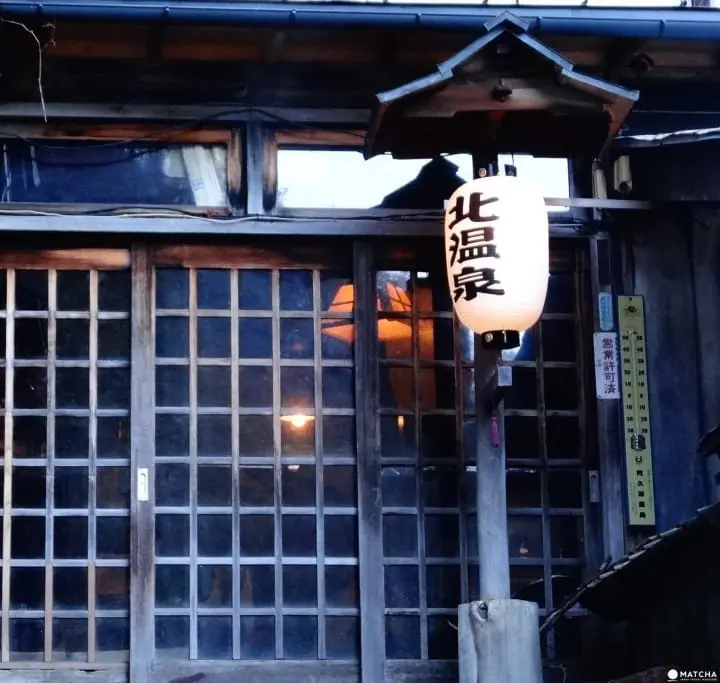
Welcome to Kita Onsen
While the precise details of its origins are unclear, the noren (a sign curtain hung at shop entrance) dating from the Meiji era (1868-1912) hanging behind Kita Onsen’s front desk shows that the onsen was also called “岐多温泉” (“Kita Hot Springs”) meaning a hot spring with numerous sources. It was during the Meiji period that the onsen was renamed to "Kita Onsen Ryokan".
The Rich History of the Kita Onsen
According to local folklore, the Kita Onsen spring was discovered some 1,200 years ago by a Tengu ("heavenly dog"), which is a mythical goblin. However, records from 738 indicate that court nobles were traveling to the Nasu-Onsenkyo hot springs including Kita Onsen for the curative properties of these springs.
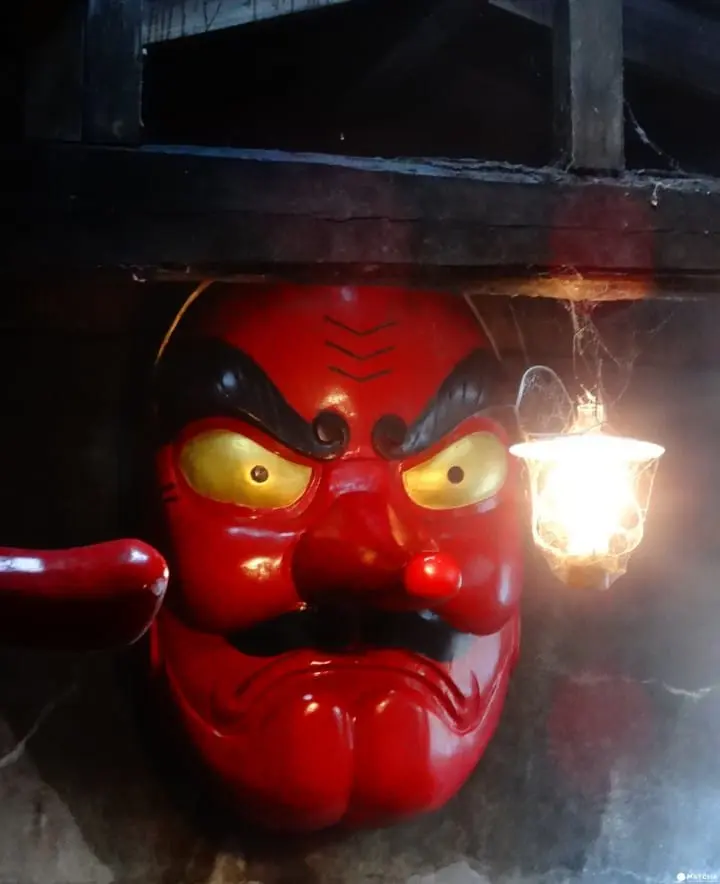
Tengu Mask hanging in the Tengu no Yu Bath
Records also show that in 1692 the Kita Onsen spring was initially called “Fudonoyu” ("The Hot Springs of the God of Fire") and was known for its profuse flow of hot spring water.
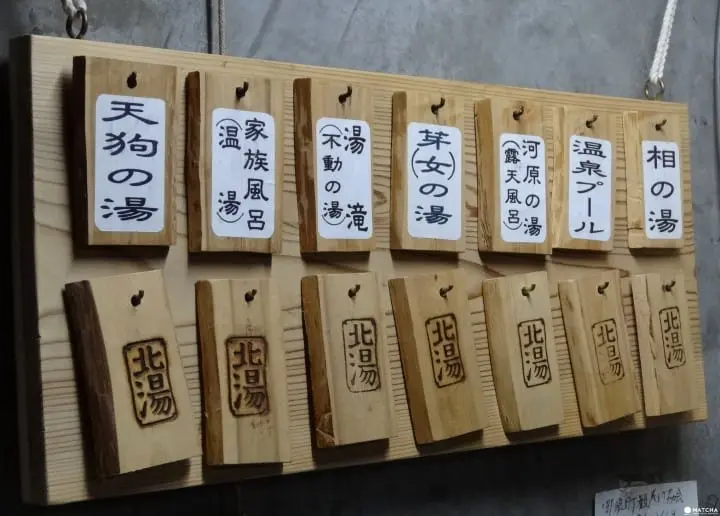
Keys to the seven baths at Kita Onsen
In the same year, the first building was constructed. It housed the Fudonoyu bath. During the Sengoku period (an age of civil wars in Japan, 1467-1603) Kita onsen was a training center for Yamabushi (Buddhist mountain ascetics) and the hot springs helped the Yamabushi to recover and cure diseases.
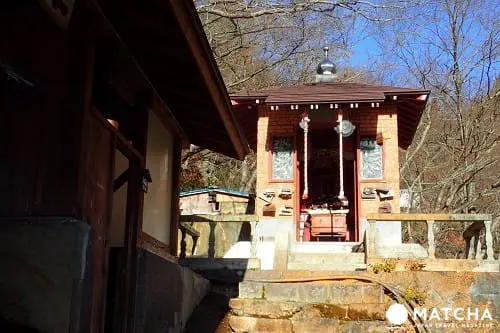
In 1722 a shrine was erected near the source of the hot springs.
From 1596 to 1871 the Kurobane clan headed by the Ozeki family ruled over the area around Kita Onsen. The Kurobane clan, under orders from the Tokugawa Shogunate, was instrumental in ending the Yamabushi and Tengu worship in the Nasu region. In the early Meiji period (1868 - 1912), Kita Onsen passed into the hands of Genzo Kumagai and began to be operated by the Kumagai family.
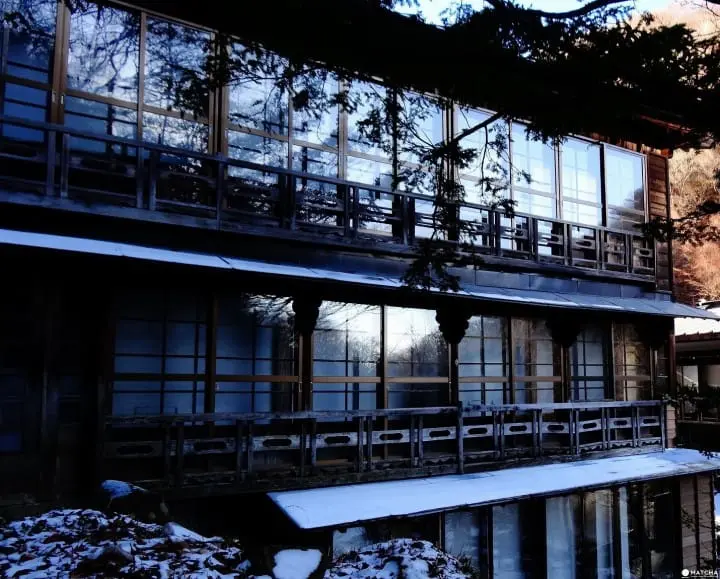
In 1854, about the same time that the expedition lead by Commodore Matthew Calbraith Perry of the US Navy landed in Japan, the first of the three existing buildings of the Kita Onsen was constructed and is known as "Matsu no ma" ("The Room of the Pine").
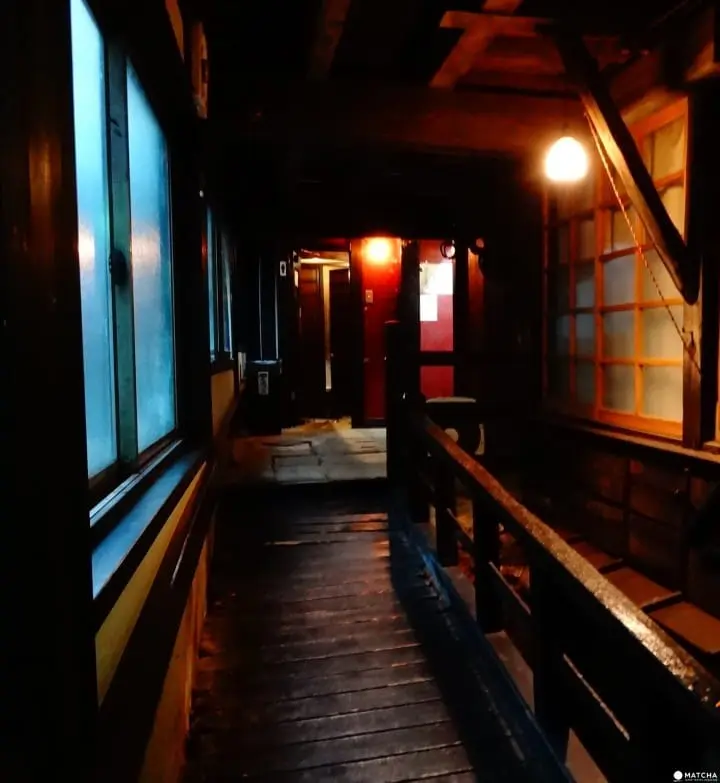
The maze of corridors interconnects the buildings
Subsequently, in early Meiji (1868-1912) and early Showa (1925-1989) two additional structures were added and interconnected via a labyrinth of hallways.
Enjoy the Wonderful Ambiance of the Kita Onsen
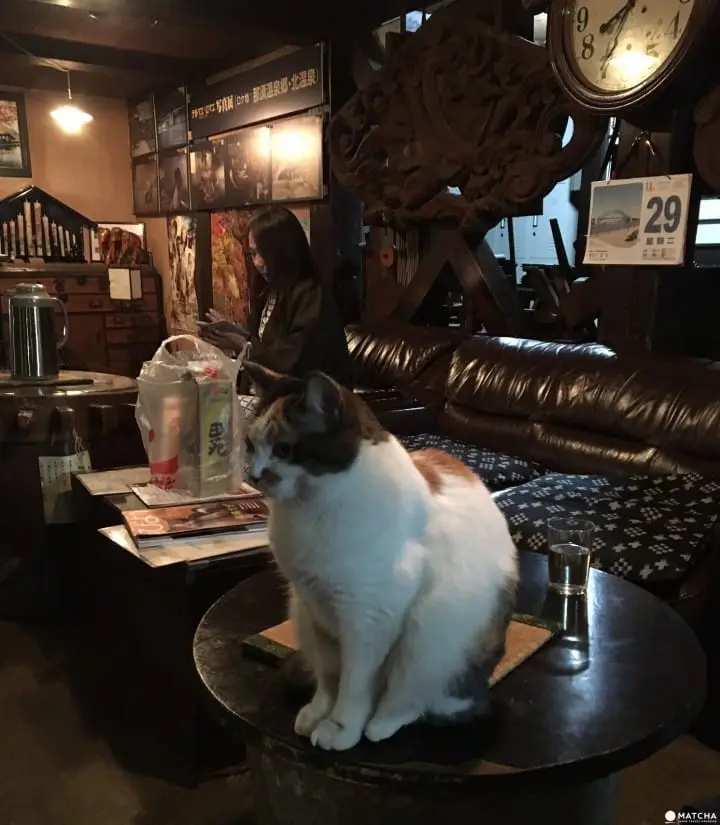
One of Kita Onsen’s famous cats
As you walk the mountain path (400 meters) down to the onsen from the upper parking lot, you can enjoy the magnificent views of mountain cliffs, the Komadome Waterfalls off to your left and the Yosase River below.
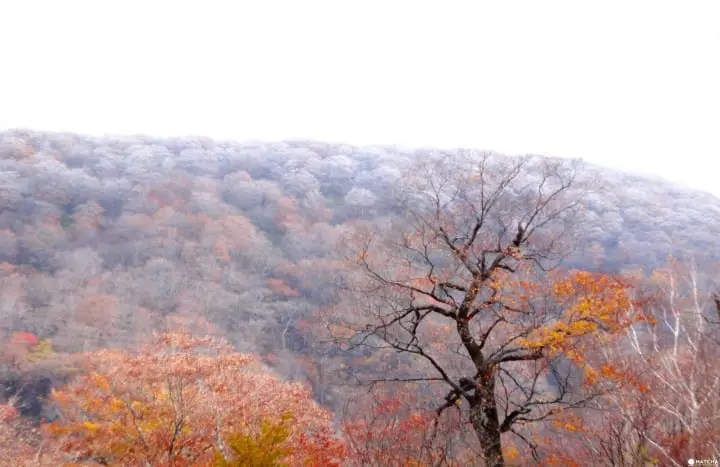
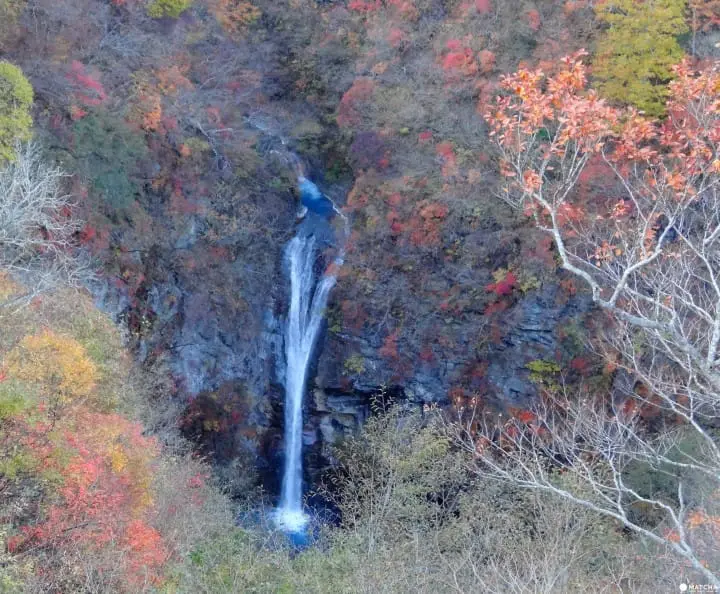
Komadome Falls
You will begin to feel that this visit will be very unique as you approach the distinctive and historical buildings of Kita Onsen along with the huge (10 x 15 meters) outdoor bath (rotenburo) fittingly called "Oyogiyu" ("Swimming Bath"), which is located just before the entrance to the onsen.
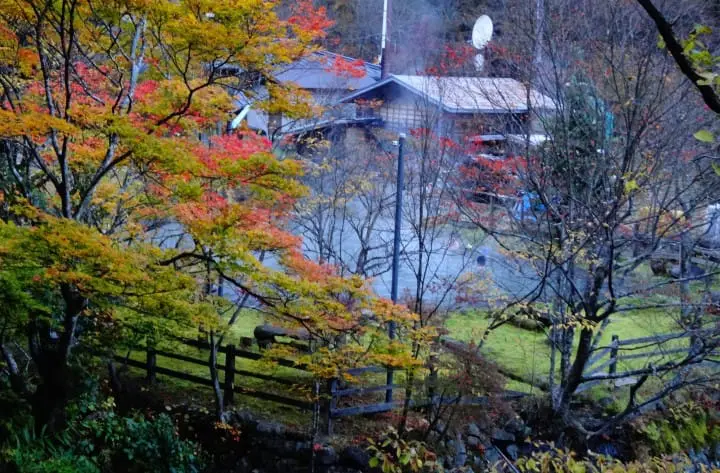
Oyogiyu - "The Swimming Bath"
Once you enter, you’ll feel as if you have traveled back in time. The lobby and the reception reminds one of the bygone days of the Edo, Meiji and Showa periods with countless antiques and old local folk craft adorning not only the lobby but also the interior of all the three structures.
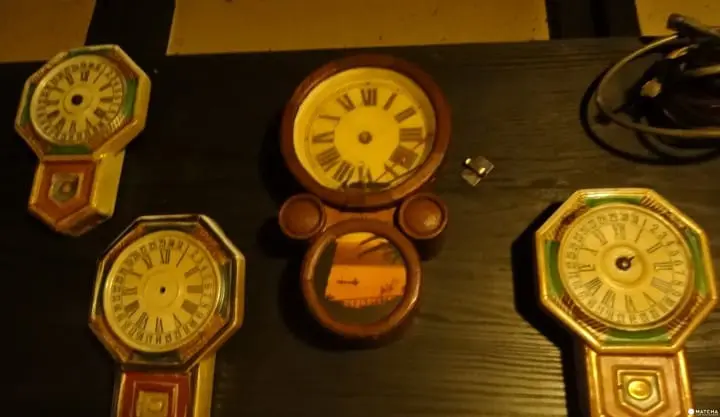
Time has stopped at Kita Onsen
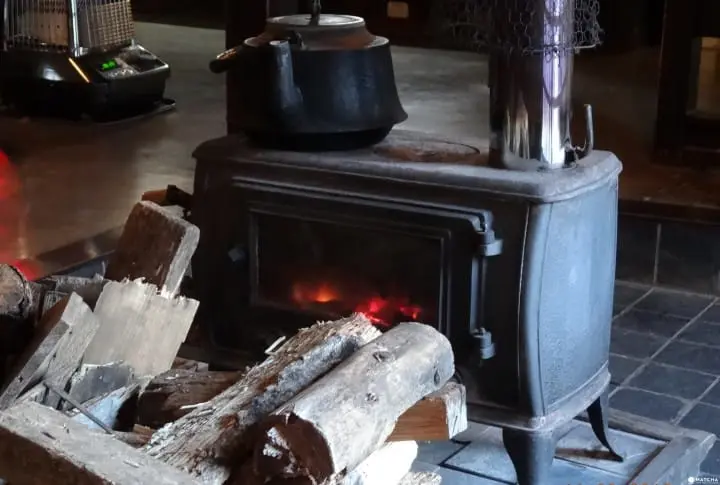
A warm fire welcomes visitors in the late fall and winter
A wood stove greets visitors at the entrance and the dim light from antique lamps casts a soft glow over the maze of hallways and the black, creaky wooden floors, creating a very nostalgic and welcome atmosphere.
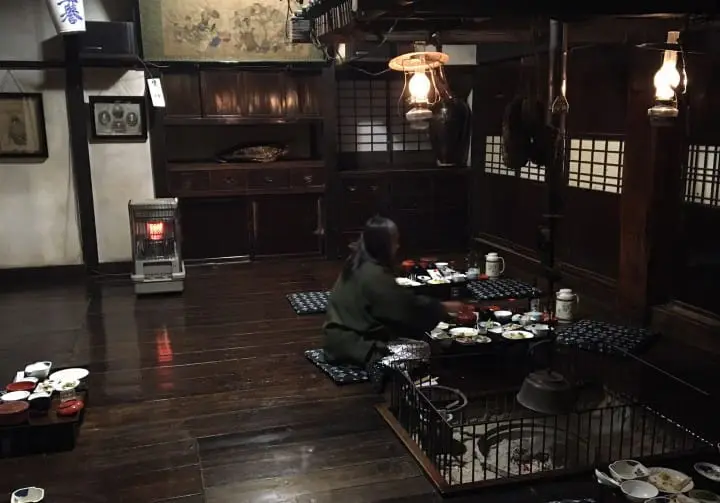
Edo period dining room with earth hearth
The dining room with a traditional irori (a hearth constructed in the floor) is in the "Matsu no ma" building and essentially remains unchanged after 162 years.
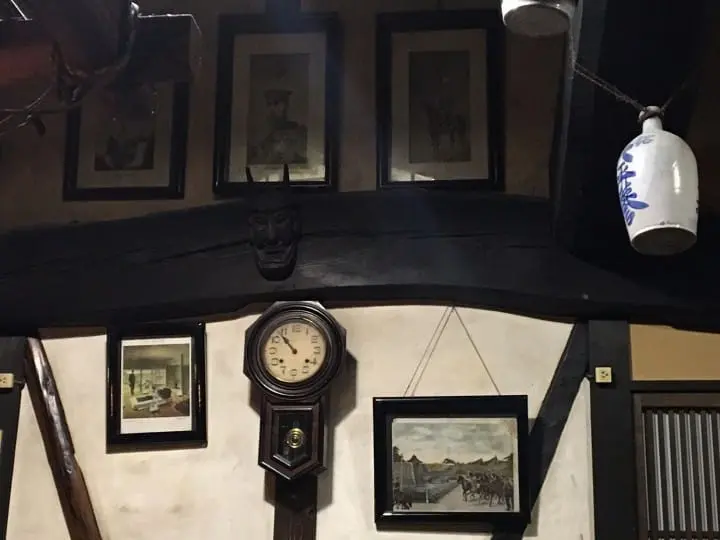
Scattered throughout the building you’ll find faded photographs of elderly Meiji statesmen, Emperor Showa and military leaders of the Russo-Japanese War (1904 - 1905).
In Conclusion
What do you think of Kita Onsen so far? Check out the second part of this article - Kita Onsen (2) - Experience The Ambiance Of An Edo Period Hot Spring - which introduces the several types of baths that can be enjoyed in this facility, as well as their amazing curative powers.
You May Also Like:
Kita Onsen (2) - Experience The Ambiance Of An Edo Period Hot Spring
Kameda Shuzo: A 260-Year Old Brewery Producing Sacred Sake (Part 1)
Kameda Shuzo - A Sake Brewery Diversifying For The Future (Part 2)
Want To Adopt An 800 Year Old Rice Paddy? The Charm Of Oyama Senmaida
Nagayu Onsen in Oita - Enjoy Silver Bubbles and Carbonated Springs!







































